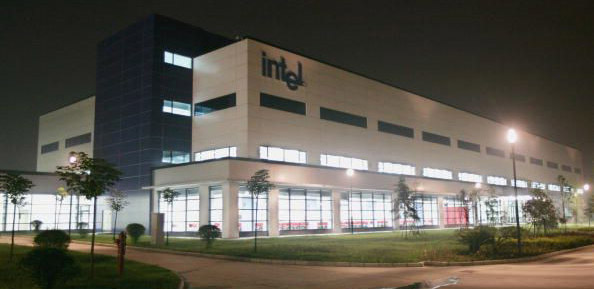Rumbles In The Orient Could Result In Higher Computer Prices
After several decades of exploiting cheap workers and low costs in China, a number of companies may have to move their facilities elsewhere. Chinese workers have begun demanding better compensation and safer working conditions (we saw how Foxconn dealt with the iPhone issues last month). Meanwhile, the yaun is finally appreciating after years of being deliberately undervalued. This puts further pressure on businesses already struggling with low profit margins. The chinese government has also entered the picture--it wants workers trained in high technology, not assembly lines or cardboard box production.
China is going to go through a very dramatic period. The big companies are starting to exit. We all see the writing on the wall," said Rick Goodwin, a China trade veteran of 22 years, whose company links foreign buyers with Chinese suppliers. "I have 15 major clients. My job is to give the best advice I can give. I tell it like it is. I tell them, put your helmet on, it's going to get ugly," said Goodwin, who says dissatisfied workers and hard-to-predict exchange rates are his top worries.
In a February 2010 survey, Alix Partners estimated that China was generally more expensive than Mexico, India, Vietnam, Russia, and Romania.We doubt we'll see a flood of companies packing up to do business in Vietnam, but the others are of potential interest. Some companies are also evaluating whether or not they should move production facilities inland, where development has been much slower and labor prices correspondingly cheaper. To date, almost all of China's development has focused on sea ports, to avoid the cost of transporting goods over land before shipping them.

One of Intel's Chinese production facilities, located in Sichuan Province
Even some native companies, like Foxconn, are choosing to relocate. The company recently announced its plans to move much of its manufacturing capacity to the city of Chongqing, where labor costs are 25-40 percent lower than in the coastal cities. Even if large corporations moved en masse to either leave China altogether or head inland, we doubt the US would see much of a difference in terms of job openings. With multiple other nations offering reduced production costs, there's still not much incentive to move production facilities here.
How this will affect the computer industry is hard to say. Longer term, it could improve the quality of the second-tier motherboards coming out of China, since local manufacturers are less likely to leave (Foxconn notwithstanding), but workers' demands for better conditions and higher pay could put some OEMs out of business. As for the demands themselves, they indicate that China is entering a new phase of industrialization, similar to what happened in America and Britain the mid-to-late 19th century. The danger here is that China (and India, in the not-so-distant future) have both grown substantially thanks to foreign investment. If those investment dollars begin flowing into other, cheaper, nations, it could take the economic wind right out of either country's sales.
China is going to go through a very dramatic period. The big companies are starting to exit. We all see the writing on the wall," said Rick Goodwin, a China trade veteran of 22 years, whose company links foreign buyers with Chinese suppliers. "I have 15 major clients. My job is to give the best advice I can give. I tell it like it is. I tell them, put your helmet on, it's going to get ugly," said Goodwin, who says dissatisfied workers and hard-to-predict exchange rates are his top worries.
In a February 2010 survey, Alix Partners estimated that China was generally more expensive than Mexico, India, Vietnam, Russia, and Romania.We doubt we'll see a flood of companies packing up to do business in Vietnam, but the others are of potential interest. Some companies are also evaluating whether or not they should move production facilities inland, where development has been much slower and labor prices correspondingly cheaper. To date, almost all of China's development has focused on sea ports, to avoid the cost of transporting goods over land before shipping them.

One of Intel's Chinese production facilities, located in Sichuan Province
Even some native companies, like Foxconn, are choosing to relocate. The company recently announced its plans to move much of its manufacturing capacity to the city of Chongqing, where labor costs are 25-40 percent lower than in the coastal cities. Even if large corporations moved en masse to either leave China altogether or head inland, we doubt the US would see much of a difference in terms of job openings. With multiple other nations offering reduced production costs, there's still not much incentive to move production facilities here.
How this will affect the computer industry is hard to say. Longer term, it could improve the quality of the second-tier motherboards coming out of China, since local manufacturers are less likely to leave (Foxconn notwithstanding), but workers' demands for better conditions and higher pay could put some OEMs out of business. As for the demands themselves, they indicate that China is entering a new phase of industrialization, similar to what happened in America and Britain the mid-to-late 19th century. The danger here is that China (and India, in the not-so-distant future) have both grown substantially thanks to foreign investment. If those investment dollars begin flowing into other, cheaper, nations, it could take the economic wind right out of either country's sales.

